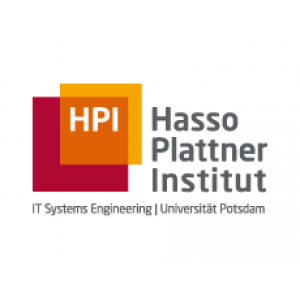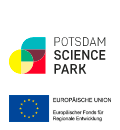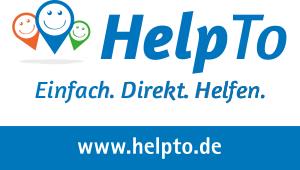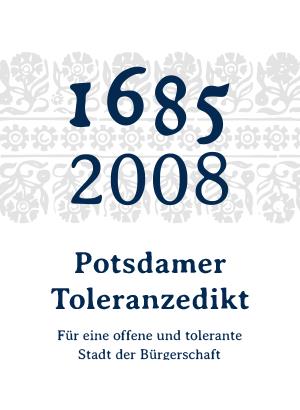openHPI: New Internet Course Offers Even Better Technology and Design
Potsdam. A comprehensive look at the complex world of Internet technology is given in the free online course offered by German Hasso Plattner Institute (HPI), starting Monday, March 31, at its international learning platform openHPI.de. Institute director, Prof. Christoph Meinel will be instructing the course in English on the technical foundations of the world-wide “network of networks.” The six-week massive open online course, entitled “Introduction to Internetworking with TCP/IP“, is open to everyone, with free registration at https://openhpi.de/course/internetworking2014. The technology and design of the interactive learning network has been further improved to coincide with the start of the course.
Meinel, who is also director of the HPI research group Internet Technologies and Systems, describes the intention of the online course as a learning experience that is open to all: “Anyone who uses the Internet daily to order goods, read the news, or send e-mails should have the opportunity to understand the necessary technologies that make all of this possible.” The German computer science professor will make areas accessible to participants from all over the world such as the foundation of digital data transfer, and the principles of how local networks (LANs) and wide area networks (WANs) work. A further focal point of the course is the “heart” of the Internet: the TCP/IP reference model and the Internet protocols, as well as applications such as e-mail and audio/video communication. A preview of Meinel’s course can be seen in this YouTube video: https://www.youtube.com/watch?v=EgPqWyO8G_U.
Revised platform makes learning easier
The new Internet course at www.openHPI.de is being offered with an improved technical foundation. “The underlying software is now ready for a larger number of users,” said Meinel. Another new feature is the enhanced display of content – now also adapted to mobile end devices. Furthermore, the platform offers new functions.
For instance, openHPI supports collaborative learning in a social learning community by facilitating communication in its new forum. Users receive points for helpful answers, can develop an expert status and in this way add more weight to their contributions.
It is now also easier to find the way through the forum, especially in the case of longer contributions and extensive question answer-exchanges. “The participants are now invited to evaluate helpful answers and to mark discussion strings that are especially interesting,” said Meinel.
In the modernized learning spaces, participants are able to conduct discussions and work together in a protected area. openHPI users can thus learn even better with their friends and acquaintances and, for example, make use of video telephony services such as Google Hangouts. A technology developed at HPI is also integrated that allows working groups at different locations to work together simultaneously with creative techniques.
openHPI’s revised technical platform forms the basis for other functions that will be enabled during the coming weeks. Among them are: issuing awards (“badges“), adding friends in the same course, giving more personalized feedback in self-tests and providing a quiz mode similar to the popular app “Quizduell.”
Still three more openHPI courses coming this year, eight in the archive
Those who want to stay on top of the latest university knowledge in the field of information technology will have the chance to take part in three more openHPI courses this year. The free courses cover the subjects of Semantic Web technologies, in-memory data management and introductory Internet security. The starting dates are May 26th, September 1st and October 27th 2014.
Eight openHPI courses are already available in the archive mode; among them the just-finished course on concepts of parallel programming. In the meantime, the software giant SAP has also begun using HPI’s technical platform - via open.sap.com - to provide its own online courses for employees, external developers and customers.
Background of openHPI.de
openhpi has been offering its free, open-access, online courses on information technology topics since September 20012. Approximately 103,000 enrollments from more than 160 countries have been registered at openHPI so far. More than 13,000 graded certificates and 16,000 participation certificates have been issued to date.
The Internet learning platform is unique worldwide with its focus on information technology and computer science and the fact that courses are taught both in English and German. In contrast to “traditional” lecture portals, courses at openHPI.de follow a fixed six-week syllabus with a defined set of educational content such as instructional videos, texts, self-tests, regular homework and exam questions. These offerings are integrated into a social platform where participants have the opportunity to interact with instructors and fellow learners, get answers to questions and discuss topics in depth.
Profile of Hasso Plattner Institute
The Hasso Plattner Institute for Software Systems Engineering GmbH (HPI) in Potsdam is Germany’s university excellence center for IT Systems Engineering. It is the only university institution in Germany offering the bachelor and master program in “IT Systems Engineering” – a practical and engineering-oriented study program in computer science, in which 470 students are presently enrolled. The HPI School of Design Thinking is Europe’s first innovation school and modeled on the Stanford d.school. It offers 240 places yearly for a supplementary study. There are a total of ten HPI professors and over 50 guest professors, lecturers and contracted teachers at the Institute. HPI carries out research noted for its high standard of excellence in its nine topic areas, as well as at the HPI Research School for PhD candidates, with its further branches in Cape Town, Haifa and Nanjing. HPI teaching and research focuses on the foundation and application of large-scale, highly complex and networked IT systems. The development and exploration of user-driven innovations for all areas of life is an additional field of importance. HPI always earns the highest positions in the CHE university ranking.












